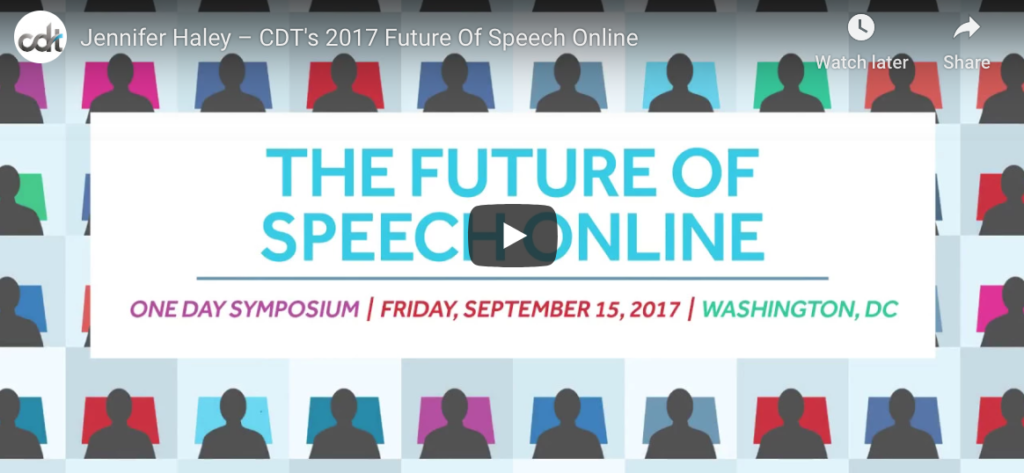Ethics, Consequence, and Free Speech Online

CDT, in partnership with the Charles Koch Institute and the Newseum Institute, hosted the Future of Speech Online on September 15, 2017. The event featured a number of talks focused on what the future may hold for online speakers. Here we share the video of a talk and our reflections on it.
Attempting to talk about the future of free speech in the digital age can be a bit like trying to hit a moving target. As the pace of technology increases, the definition of “the internet” is ever changing (e.g., the IoT space, virtual reality, etc.), so trying to nail down what should and shouldn’t be protected speech quickly becomes a bit of a harrowing task for any individual citizen.
That doesn’t mean we should stop trying. Playwright Jennifer Haley’s remarks at our Future of Speech Online event highlighted the fact that these aren’t just decisions to be made in a vacuum.
Haley took the audience through the cycles of research her groundbreaking play The Nether went through after having been first drafted. (I won’t give spoilers, but for some background on the play, know this: its core intellectual premise is the ethical question of what constitutes a crime online, and in the play’s case it explores virtual actions of a violent, sexual nature.)
“I found out that Congress passed a law in 1996 that treated virtual child porn as the real thing. And the Supreme Court, actually struck that down in a 6-3 decision as unconstitutional. Justice Kennedy said ‘the prospect of crime does not justify laws suppressing protected speech’” [emphasis my own]. What is the counterpoint to this?
Haley points to a real-life Japanese videogame maker that pulled its game from shelves (of similar content to The Nether’s premise) not because there were laws on the books that governed it, but because consumers were outraged and demanded it be taken down. And though she was writing a play on that very premise, even she agreed that her “moral outrage” kicked into high gear, knowing something like this was no longer just an “interesting ethical question.”
The rest of Jennifer Haley’s conversation was equally as fascinating – and is an exercise for the viewer in empathy, consequence, and ethics. We’ve been working through these questions in literature for decades, centuries even – now it’s time to discover them again in virtual reality and through the internet. Ms. Haley, and The Nether, will force you to, whether you’re ready or not.


